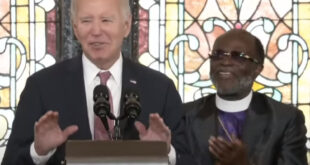 In contemporary Christianity, a troubling trend has emerged where many pastors shy away from preaching the Word with the boldness that Scripture demands. This reticence stems largely from a fear of offending congregants or driving away potential members. The result is a diluted message that often avoids calling out sin, which undermines the integrity of the gospel. The Apostle Paul, in his letters to the early churches, emphasized the importance of proclaiming the whole counsel of God without hesitation or compromise. In Acts 20:27, Paul declares, “For I have not hesitated to proclaim to you the whole will of God.” This unflinching commitment to truth is contrasted with modern preachers who, driven by fear of conflict or loss of attendance, often choose a more palatable message that avoids confronting uncomfortable truths.
In contemporary Christianity, a troubling trend has emerged where many pastors shy away from preaching the Word with the boldness that Scripture demands. This reticence stems largely from a fear of offending congregants or driving away potential members. The result is a diluted message that often avoids calling out sin, which undermines the integrity of the gospel. The Apostle Paul, in his letters to the early churches, emphasized the importance of proclaiming the whole counsel of God without hesitation or compromise. In Acts 20:27, Paul declares, “For I have not hesitated to proclaim to you the whole will of God.” This unflinching commitment to truth is contrasted with modern preachers who, driven by fear of conflict or loss of attendance, often choose a more palatable message that avoids confronting uncomfortable truths.
One significant issue that compounds this problem is the personal conflict faced by pastors whose own family members are living in sin, such as homosexuality or prostitution, and refuse to repent. This situation places pastors in a difficult position, as they are torn between their familial love and their pastoral responsibility to uphold biblical truth. 1 Corinthians 5:1-5 provides a clear example of how the Apostle Paul dealt with unrepentant sin within the church: “It is actually reported that there is sexual immorality among you, and of a kind that even pagans do not tolerate.” Paul’s directive was to address such sin boldly and without compromise, illustrating the need to prioritize the truth of God’s Word over personal relationships. Yet, many modern pastors struggle to apply this principle, finding it hard to confront the reality that their unrepentant loved ones may face severe spiritual consequences.
This failure to address sin does a great disservice to the broader body of Christ. Matthew 18:15-17 outlines the process for dealing with sin within the church, emphasizing that confrontation and correction are crucial for maintaining the health of the church community. When pastors avoid this responsibility, they not only fail to help the individual sinner but also neglect their duty to protect and nurture the spiritual well-being of the entire congregation. The words of R.C. Sproul are instructive here: “The most loving thing we can do is to speak the truth clearly and boldly. To do otherwise is to risk leading people astray.” Similarly, John MacArthur has repeatedly emphasized that faithfulness in ministry requires a commitment to proclaiming the whole counsel of God, even when it’s uncomfortable or controversial.
Moreover, the example of Jesus Himself, who boldly denounced sin while extending grace, underscores the need for pastors to balance truth with compassion. In John 8:11, after the woman caught in adultery is forgiven, Jesus commands her to “go and sin no more,” demonstrating that forgiveness comes with a call to repentance and a changed life. Pastors who neglect to call out sin in their preaching, even at the risk of offending or losing members, fail to uphold this model of faithful and loving ministry.
In conclusion, the current trend among many pastors to avoid bold proclamation of God’s truth out of fear of offending or losing members undermines the integrity of the gospel message. By failing to address sin directly, particularly when it involves personal conflicts with loved ones, they do a disservice to both individual sinners and the broader church community. As Strong’s Concordance and various biblical commentaries highlight, the call to preach the Word with boldness, regardless of personal or congregational discomfort, remains an essential aspect of faithful ministry. The church must return to a commitment to the unvarnished truth of Scripture, embracing the courage to confront sin while offering the redemptive grace of God.
- Surrendering the Fight to Christ: Trusting the Lord to Lead This Battle - October 16, 2024
- The Teamsters Have Sold Out Their Christian Members: A War Between Good and Evil - September 29, 2024
- Kamala Harris: Duping the Dupes, Goebbels Style - September 14, 2024
 UPS Needs Jesus A Workplace Ministry
UPS Needs Jesus A Workplace Ministry



